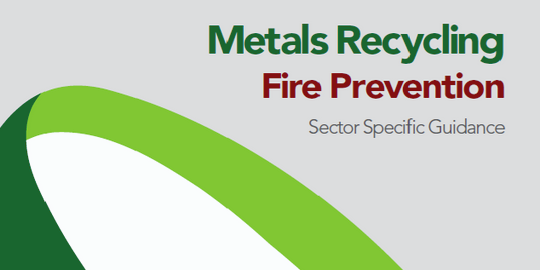British Metals Recycling Association says new figures underline the need for a Government-led campaign warning of the dangers of fires being caused by exploding lithium-ion batteries…
A new Government-led campaign is urgently needed to highlight the rising number of fires being caused by exploding lithium-ion batteries.
The British Metals Recycling Association (BMRA) said the problem had “been ignored for too long”.
Their warning comes after new figures revealed the number of blazes caused by exploding batteries in e-scooters and e-bikes has soared.
Data from the Chartered Trading Standards Institute found blazes more than doubled in a year.
James Kelly, the CEO of the BMRA, said: “These figures underline the need, once again, for more education and communication about the dangers of lithium-ion batteries found in rechargeable items, including e-bikes and e-scooters. This is a growing problem, which is putting the safety of members of the public, and those working right across the recycling sector at risk. For too long it has been ignored, which is why the BMRA is now calling for a Government supported campaign to better inform the public of the hazards both for safe use and disposal of lithium-ion batteries.”
Freedom of information revealed e-scooters and e-bikes were responsible for 167 fires in 2021, compared with just 67 in 2020.
And blazes last year were on course to exceed 2021, with 161 incidents recorded to the end of September - a 28 per cent increase on the previous year's monthly average. Firefighters in London alone attended 88 blazes caused by e-bikes in 2022. The equivalent figure in 2021 was 49.
Many fires have been attributed to conversion kits used to turn a standard bike into an electric one.
The CTSI says consumers should check if their vehicle displays a valid UKCA or CE safety mark.
The BMRA has long-campaigned for greater awareness on this issue.
In December they said new rules were “urgently required” to prevent households throwing unwanted electrical equipment out with the general waste following Christmas.
Waste electrical and electronic equipment (WEEE) can now be linked to three times more fires inside bin lorries and at household waste recycling centres than initially thought.
WEEE generally covers products that have a plug or need a battery, such as fridges, vacuum cleaners, cookers, mobile phones and computer equipment.
Discarded items may contain batteries which can cause fires if they are damaged, and they need to be treated differently to general household waste.
The British Metal Recycling Association (BMRA) say local authorities should carry out kerbside collections.
Mr Kelly added:“Councils need to introduce kerbside collections for discarded WEEE items. That is because we are seeing increased fires happening in bin lorries and at household waste recycling centres as well as metal recycling sites like those of our members where these items can end up in the incorrect waste stream. People’s lives are at risk.”


